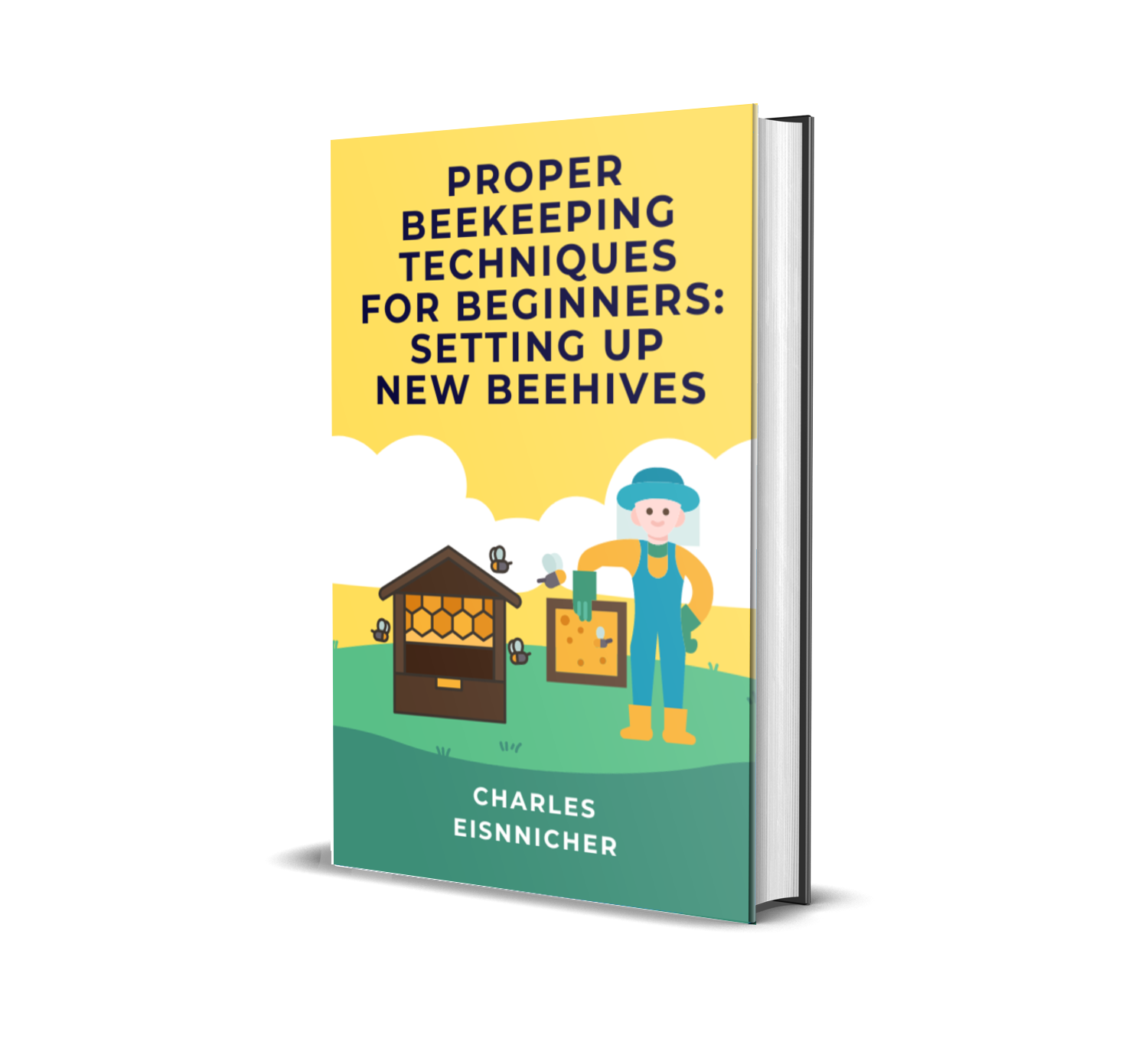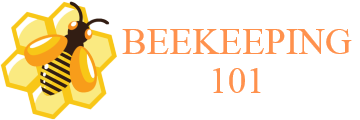The beginning of beekeeping is an exciting journey, and choosing the correct honey bee species is a key factor in overall success. Although there are four main species of honey bees in the world – European (Apis mellifera mellifera), Carniolan (Apis mellifera carnica), Caucasian (Apis mellifera caucasia), and Italian (Apis mellifera ligustica) – the Italian honey bee (Apis mellifera ligustica) is widely considered the best species for beginners.
With its light, calm nature and notable production levels, the Italian honey bee is the most popular honey bee for first-time beekeepers. Let’s take a closer look at why the Italian honey bee is a great choice for starter beekeepers.
If you’re thinking about starting beekeeping, the very first question you might be asking yourself is ”what are the best honey bees for beginners?” Well, look no further! This article will discuss the best bee species for beginner beekeepers, how to establish a beehive, how to care for the hive come winter, and much more. You’ll soon be a well-informed beekeeper, confident in your ability to care for these essential insects.
Whether you’re just starting out with beekeeping or an experienced beekeeper looking to expand your knowledge, this article provides valuable information for all!
Table of Contents
Introduction to Beekeeping
Beekeeping is a fascinating hobby that has been around for centuries. To start off, you’ll want to familiarize yourself with the basics and equipment.
Beehives are designed to house and protect the colony, and you’ll need a veil for protection as you observe the hive. You’ll also need tools to check for mites, perform inspections, and extract honey.
Once you have the essential items and a full understanding of the commitment and dedication involved, you can start building your colony. Keep in mind the importance of providing a healthy and safe environment for your bees and understanding the local regulations and best practices.
Beekeeping is a rewarding and long-term endeavor with many rewards, so it’s something that everyone who loves nature should consider.
Types of Honey Bees
There are three types of honey bees which include the European honey bee, the African honey bee, and the Western honey bee. The European honey bee is the species that is kept by beekeepers and is used for honey production and crop pollination.
They are known for their gentle temperaments and make excellent pollinators. The African honey bee is slightly more aggressive than its European counterpart, but it is still used by beekeepers in certain situations where they are more suitable.
The Western honey bee is very aggressive and resistant to disease so it is used in areas where other types of honey bees cannot survive. All three of these types of honey bees play an important role in pollinating crops and providing us with a natural sweetener.

Get A Free Downloadable Ebook To Teach You How To Set Up New Beehives
Give Me My Free eBookBenefits of Keeping Honey Bees
Keeping honey bees is an increasingly popular practice as it can provide a variety of benefits to your home, garden and environment. For starters, keeping honey bees is the perfect way to help support pollination in your area, as the honeybees will buzz around and help ensure that your fruits, vegetables, flowers, and other makeup of your yard are able to bear the fruits of their labor.
Furthermore, on the practical side, these honeybees will produce honey as a byproduct of their pollination, which you can enjoy yourself or can even sell at local farmers markets to make a profit. Lastly, by keeping honey bees, you are helping support the world’s ecosystem as a whole.
The world needs bees more than ever, and any effort to support bee populations in your area should be applauded.
Supplies Needed to Get Started
Getting started with a new project or hobby can be exciting, but you will need to make sure you have all of the necessary supplies first. To get started, you’ll need items like paper and a pencil for sketching, a ruler for making precise measurements, a variety of materials to work with (including fabric, wood, metal, and more), plus a few basic tools like scissors, glue, a hammer, and a drill.
You’ll also need safety glasses to protect your eyes, wax paper to prevent your materials from sticking together, and well-lit, ventilated workspace to avoid accidents. Depending on the type of project or activity you are taking on, there may be other materials or tools you will need, so proper preparation is essential for getting started!
Steps to Setting Up a Beehive
Setting up a beehive requires knowledge, dedication, and a few supplies. First, decide on the type of hive you’d like to use: Langstroth, Warre, or Top bar.
Next, get a hive stand and place it on a flat surface in a sunny location. Finally, purchase a package of bees and queen from a reputable vendor.
After installing them in the hive, fill feeders with sugar and water and wait for the buzzing to begin! Regular maintenance like monitoring for pests, providing supplemental feed, and checking for disease will help keep the hive healthy and productive.
The Best Honey Bees for Beginners
If you are new to beekeeping, then the best honey bee for beginners to start with is the Italian honey bee. This type of bee is a hardy and productive variety that is known for high performance in a wide range of climatic conditions.
The desired traits of an Italian honey bee include gentle bee behavior, strong yellow-orange color, and rapid egg-laying abilities. They are also fairly resistant to common bee diseases.
Additionally, the Italian honey bee is naturally robust, meaning it typically survives for longer than other types of bees, which makes them a great choice for those just starting out in beekeeping.
Feeding and Maintaining Beehives
Beekeeping is an incredibly rewarding hobby, and responsible for the pollination of much of the world’s food. Feeding and maintaining beehives is critical in maintaining healthy, productive colonies.
It is essential to provide them with the proper diet in order to withstand the perils of parasitism, diseases, and other environmental stresses. Introducing supplemental feed in the form of sugar syrup or protein-rich pollen is often important in areas with food scarcity or harsh climates.
Additionally, beekeepers are required to monitor their colonies for pests, mite infestations, and other health issues, making sure to take corrective measures and treatment when necessary. Finally, it’s important to keep your hives clean and well maintained at all times, whether that is through regular inspection or through preventive measures such as using the correct type of hive materials which can help reduce moisture build-up.
Feeding and maintaining beehives is crucial for successful beekeeping, for if done correctly, it can lead to healthy, thriving colonies for years to come.
Common Issues Faced by Beekeepers
Beekeeping is an essential agricultural practice, as honey bees play a major role in pollinating crops. Unfortunately, numerous issues can threaten the health of honey bee hives.
Most common among these are Predators, Varroa Mites, Lack of Bloom, Pesticide Toxicity, Colony Collapse Disorder and Poor hive health management. Predators such as skunks, bears, and rodents can destroy entire hives in one single attack; therefore, beekeepers often install fencing and or electric shock equipment to protect the bees from predators.
Varroa mites are parasites that feed on the larvae and pupae of honey bees, which can lead to deformities, virus transmission, and population decline. Additionally, if there is a lack of nectar-producing plants, there may be a dearth of food for the bees.
Pesticide toxicity is a major problem as well, as bees may ingest the toxins while gathering pollen and nectar. These toxins can then travel to various plants and potentially impact the honey bee population.
Finally, Colony Collapse Disorder is a mysterious condition where entire hives are abandoned, leaving behind honey, larvae, and food stores. This can be an expensive and time-consuming issue to deal with.
All of these factors contribute to the overall health of honey bee colonies and can be best addressed by well-educated and experienced beekeepers.
Common Questions About Beekeeping
Beekeeping is a popular hobby amongst many, but starting out in this hobby can have many questions. Common questions about beekeeping include figuring out what supplies and equipment are needed, deciding where to place the beehive, understanding what diseases may affect bees, and learning how to handle honey production.
There are many guides out there to help beginners become well versed in the basics of beekeeping and managing the hives. Knowing the differences between honeybees and other types of bees is an important part of beekeeping and can help ensure proper hive management.
Understanding how properly to remove and store honey from the hive is crucial for profitable beekeeping. Lastly, remembering to research local regulations when starting a beehive can help prevent any legal issues.
Resources for Further Reading and Learning
Further reading and learning resources can provide invaluable access to information and support, helping individuals become more knowledgeable and successful in their chosen field. From textbooks to webinars, blogs to tutorial videos, the resources available to learners have never been more vast and varied.
Additionally, many resources are available at no cost, helping people around the globe access the knowledge they need. Whether you’re looking for college-level course materials, advice on starting a business, or guidance on healthcare topics, you’ll find helpful resources with a few clicks of your mouse.
Explore the world of knowledge today and start taking advantage of these amazing resources.
Finishing Up
The key to success in beekeeping is to find the right bees to work with. As a beginner, it is important to select a species of bee that is known for its dependable, gentle, and productive traits.
Honey bees are an ideal choice, as they will not sting unless disturbed, they produce a large amount of honey and wax, and they are highly adaptive to varying environmental conditions. With proper care and a good mentor, your beekeeping experience can be an immensely rewarding and exciting one, full of discovery and learning.
So start your beekeeping journey today, and let the bees work their sweet magic.
Charles

Get A Free Downloadable Ebook To Teach You How To Set Up New Beehives
Give Me My Free eBook









